Outside my comfort zone: scuba diving
I am a certified open water diver and have done exactly 29 dives up to today. That makes me a relative newbie, but I know the basics of scuba diving.
Nevertheless, scuba diving is and always will be outside my comfort zone.
The basic problem is that the whole thing just goes against any idea of what is natural and normal for a human being. We can’t breathe underwater, so trying to do so goes against instinct. We don’t have fins, so putting artificial ones on our feet feels … well, artificial.
And, being a natural worrier, I worry.
Is my equipment in good shape? Of course it is; the dive center’s reputation is everything to them. They’re not going to be careless with their customers’ safety. (Speaking of which, we’re at International Arab Dive Center in Aqaba, Jordan, and we couldn’t have received better, more patient, more professional but friendly treatment from the diving center guides or from the hotel staff. And, no, I haven’t been paid in any form for my endorsement!)
Is my regulator giving me enough air and not leaking? Easy enough to check.
Am I weighted correctly? Yes, eight kilos, just like my last several dives, which went fine. (For those who don’t dive, divers have to add weights on a belt around our waists or we will be unable to descend because of the buoyancy of our bodies, tank, wetsuit, etc. How’s that for unnatural? Weighing ourselves down and jumping into the ocean!)
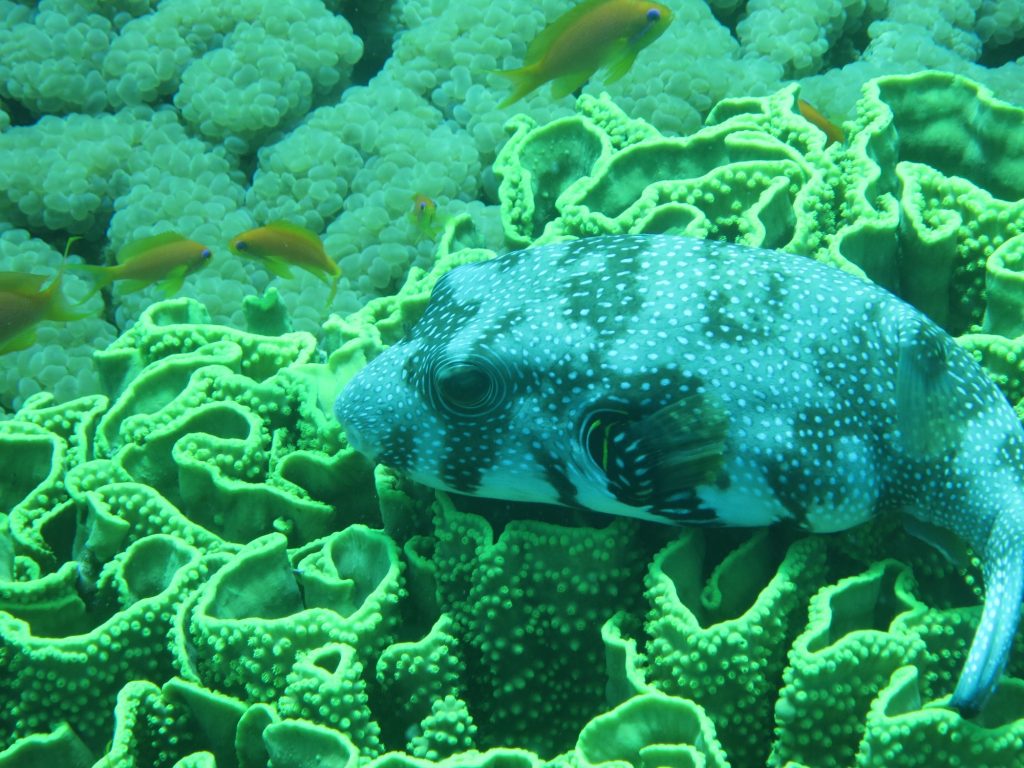
Is my mask leaking? That one doesn’t worry me so much, since it happens so often that I’m quite adept at clearing the water out of it.
Is there still enough air in my tank? Am I breathing too hard? Generally, the answer to this second question is “yes.” I always run low on air before everyone else in a diving group, which means, according to the rules of diving in groups, that everyone ends up having to head back, even if they still have plenty of air. I think it’s from the sheer anxiety that I end up breathing so deeply.
Where is everybody? I worry that I’m lost and that the others in my group – in this case my daughter, my husband and our guide – have swum too far away from me. So I stop and turn around, looking up and down as well to see if they’re above or below me. This probably contributes to depleting my air supply, since it requires extra effort each time. And it’s unnecessary; they’re always nearby.
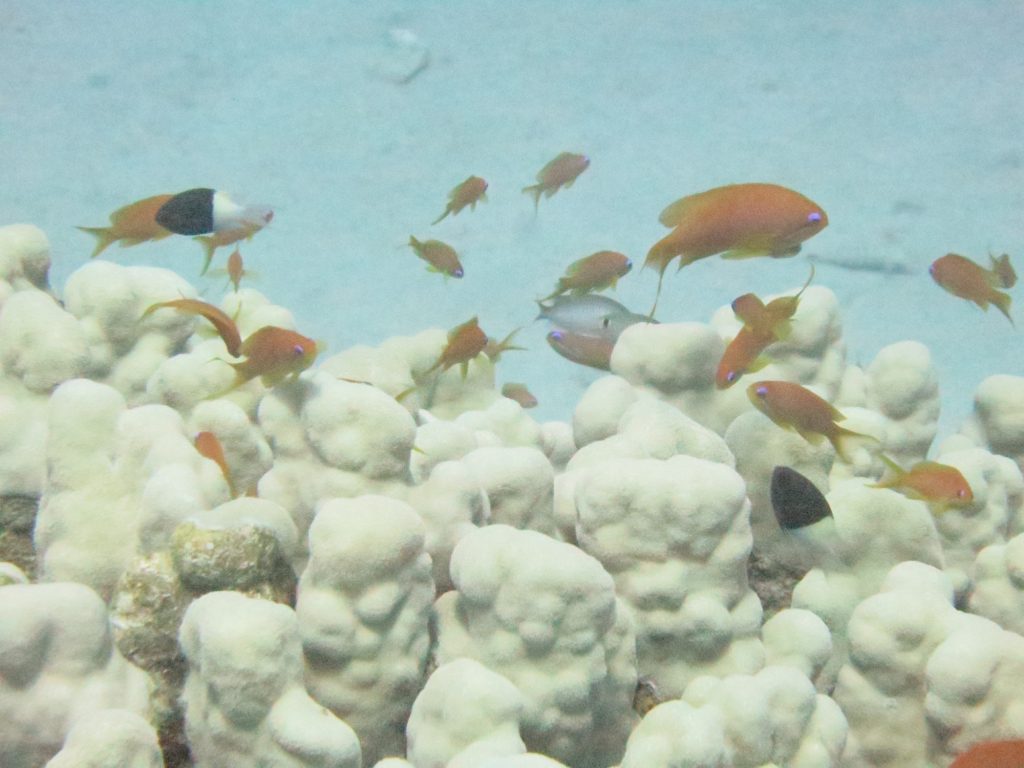
And also: where’s my daughter? Is she okay? She has trouble with her ears sometimes when she descends; is that going okay? Is her mask staying on properly? I signal her a question, and, sure enough, she’s fine. Much better than me, most of the time.
And so on, and so on.
Besides the worry, it’s a lot of work. Those tanks are heavy. All of the equipment is heavy and, until I’m in the water, the wetsuit is hot. Getting all of the equipment connected, putting it all on and, if it’s a dive from shore, lugging it all down to the water is exhausting.
So why do I do it?
It’s the view. I can see much more than when I just snorkel on the surface. I can get near to whatever it is I want to see in a way that’s not possible while snorkeling. Creatures and corals that are not visible from the surface are easy to see from their own level or below. I am not affected by currents or waves or noise, like with snorkeling.
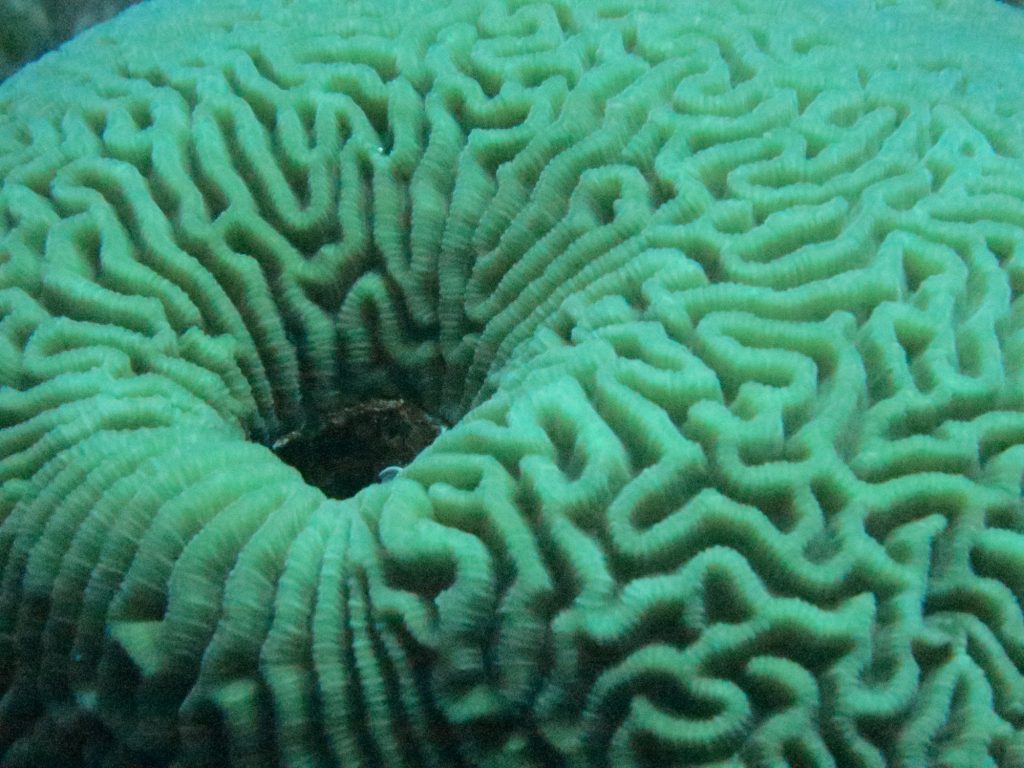
The corals are in better shape too. Swimmers in shallower water aren’t always aware of the effects of their kicking feet. Divers, on the other hand, are often more conscious of the environment around them, so the reefs in deeper water that they visit are more intact.
Once I’m there and looking at the scenery, my breathing often calms down, as I observe a truly magical world where a single square meter can keep me transfixed.
Here in Aqaba, Jordan, there are some spectacular dive sites, rivaling what I saw at the Great Barrier Reef in Australia, and it’s much easier to get to since here the reefs are directly offshore. I did a wreck dive for the first time the other day: it seems cliché, but it was indeed a ghostly sight.
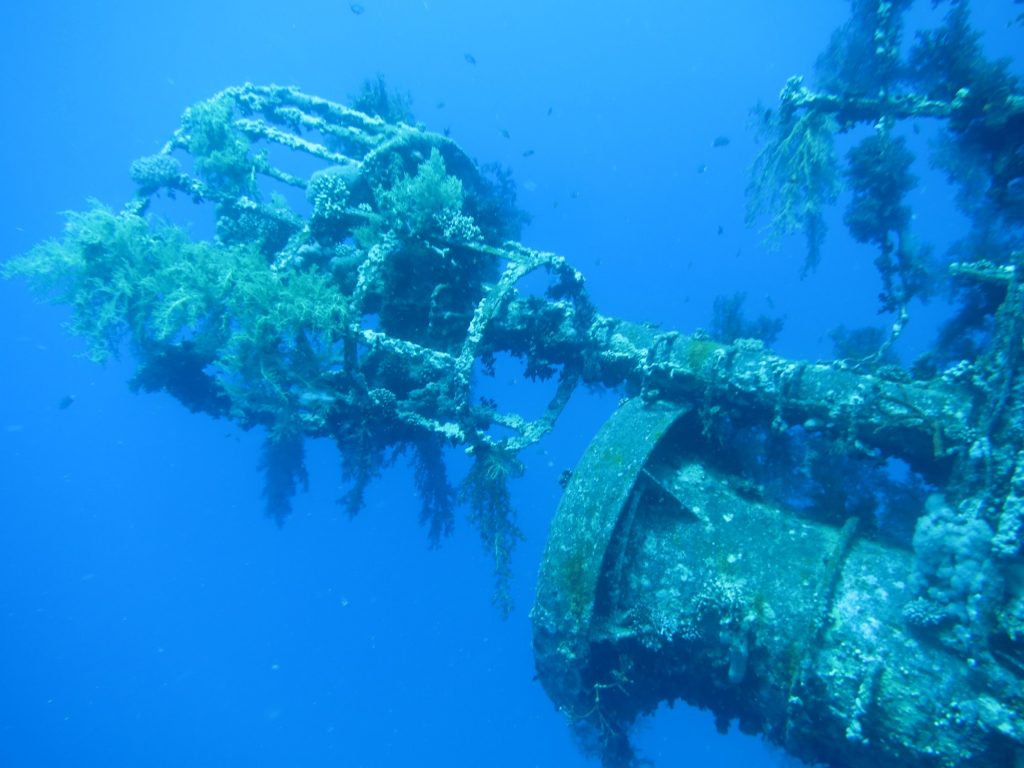
Tomorrow night I’m facing my first night dive. I say “facing” because this is something I’ve never dared to do. The idea of going underwater when it’s dark terrifies me. If diving is outside my comfort zone, then night diving is so far outside my comfort zone it’s in another country altogether.
Everyone assures me, though, that it won’t be as dark as I expect. There will be a bright light on the water from the boat. The moon will be just past full. And each of us will carry a flashlight.
My daughter and husband, who have both done a night dive before, assure me that it’s absolutely worth doing, and I’ve agreed to go. Is it worth the stress–the worry and work? I don’t know. I’ll let you know.
Have you done a night dive before? How was it?


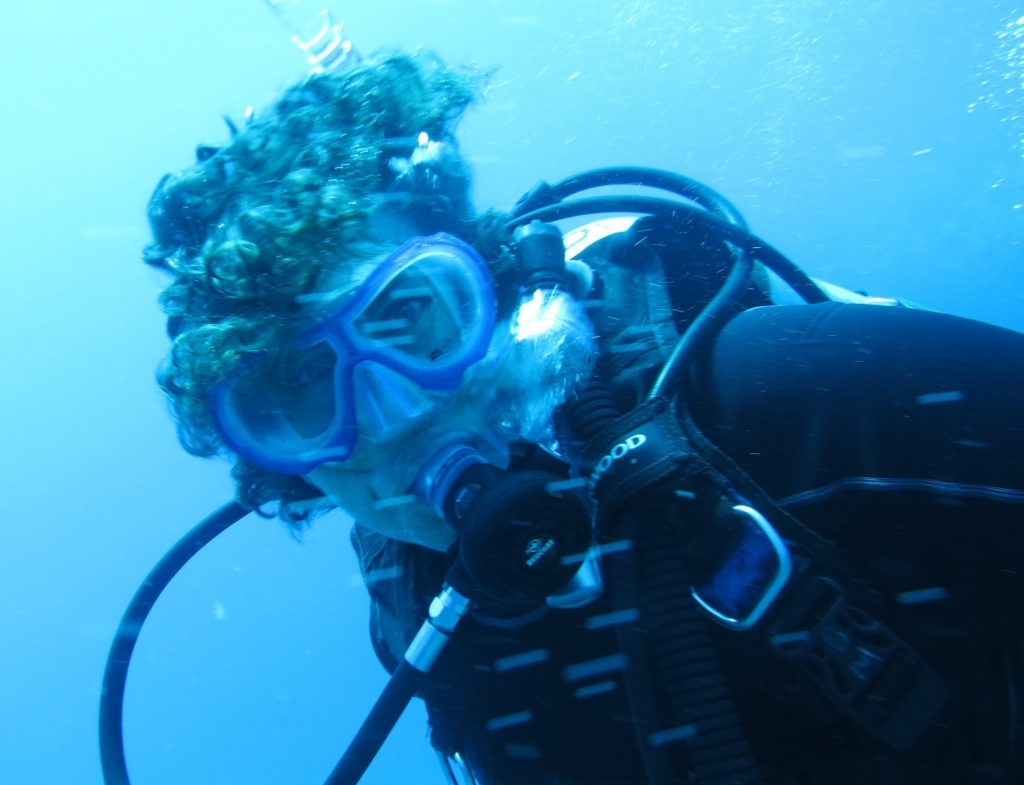
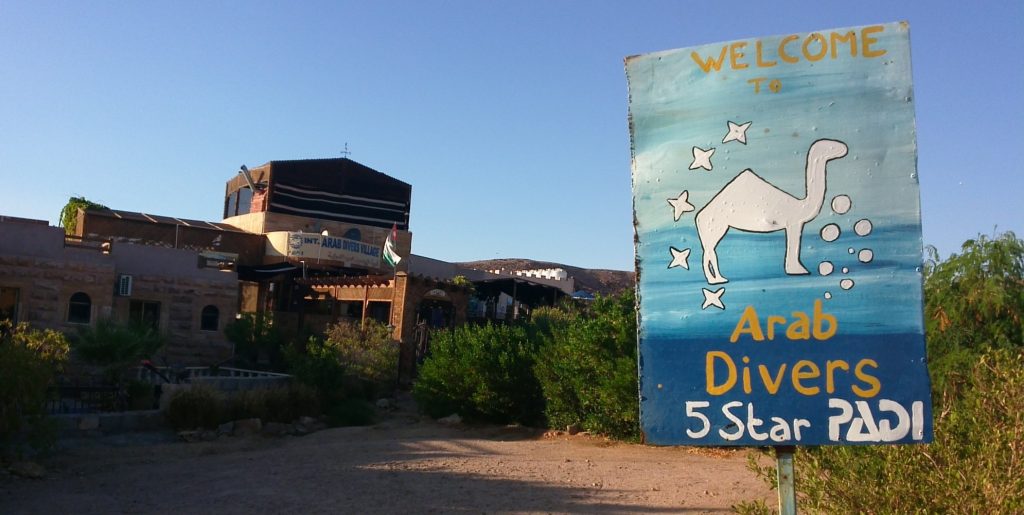

I did it! My foremost thought during the whole dive was “This is nuts!” but I did it! It was interesting: corals that normally are open were closed, and ones that are usually closed during the day were open. There were a lot of open tube worms and we saw some squids and a rockfish for the first time. And everyone was right: you can still see a lot down there. I still like it better during the day, though; at night it loses all the color!
Floating at the bottom of a pool during night is so relaxing.. The moon light that falls on the surface of the water looks so awesome. Everyone scuba divers should try dive in the night as well.
Yes, I would try it again, but I still don’t think I’d be comfortable with it. That time I did the night dive all my focus went to keeping my anxieties under control. Maybe next time I could get to that state of relaxation you describe.
good post
We are a family run dive centre in Cyprus, we love your content.